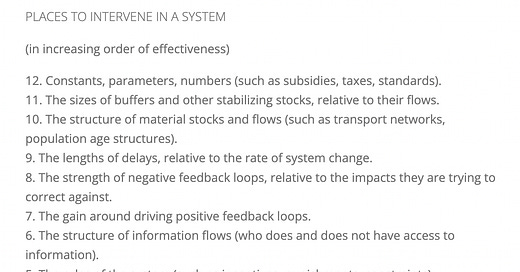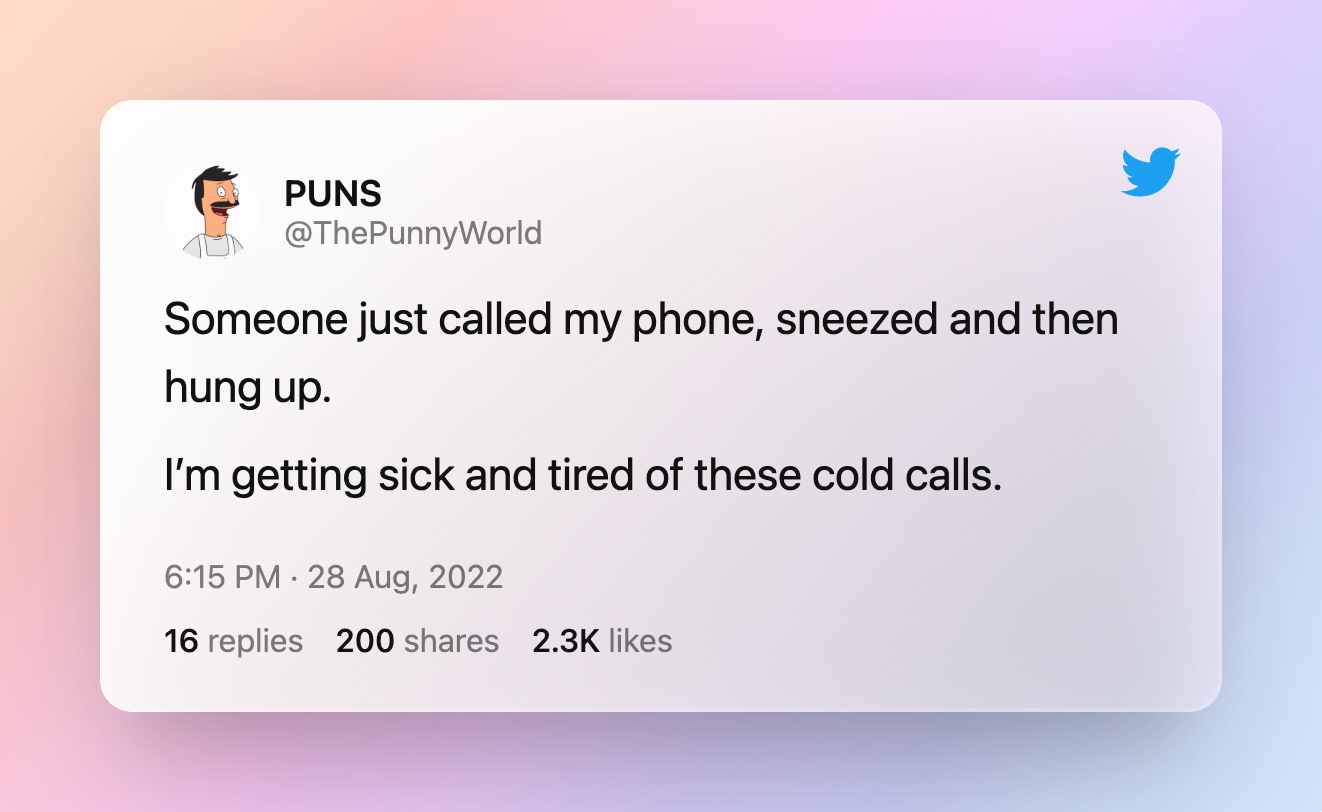
#69 Words don't just have meanings. They also have emotions attached to them
Rituals, Leverage points, Black hole words, Pretty ideas & Good conversations
In his recent post, James Clear shared this beautiful nugget on how to operate:
It can be a great advantage to (1) be somewhat restless and (2) have very high standards.
Holding yourself to a high standard prevents you from jumping into whatever new thing comes your way. It encourages you to be thoughtful and ensures you remain patient for the right opportunity.
However—because you are somewhat restless—you are always digging around and watching for opportunities. When most people stop searching, you continue to explore. And when an opportunity comes your way that meets your standard, you'll be more likely to notice it and more likely to act upon it immediately.
He did not mention it, but the above strategy is actually the recipe to create luck. These habits are not easy to create & stick too. The short term benefits are almost always minimal. But the tradeoff can be worth all the pain. Think about it.
Let’s get to today’s finds.
1. Shishir Mehrotra on Lenny’s Podcast
Shishir’s episode on Lenny’s podcast is one of the best things I have heard in recent times. It’s filled with trademark wisdom that Shishir has been sharing through his blogs and other content. The topic of rituals is close to Shishir. He spends a good amount of time elaborating it and further talks about the new book he is writing on the same theme. There are innumerable lessons to take away. Instead of listing the lessons, I am listing the topics/themes he covered.
Black loops & blue loops
Rituals (covered briefly in #57)
Eigenquestions (covered briefly in #58)
PSHE framework
Hiring & reference checks
Lenny is a curious student here and Shishir is the storyteller. These topics have appeared in his blogs, but the depth & breadth in this podcast makes a fantastic listen. I highly recommend this one.
2. Leverage Point
Donella Meadows defines Leverage Points as follows:
These are places within a complex system (a corporation, an economy, a living body, a city, an ecosystem) where a small shift in one thing can produce big changes in everything.
Her post “Leverage Points: Places to Intervene in a System” is a long but very useful read on the topic. She has shared an in-depth view on leverage points in any system. She makes the concept easy to understand and gives input on how to use it in any domain.
Here’s the snapshot of her list:
3. Black Hole Words
Molly defines “Black Hole Words” in the following way:
To me, these are words that are commonplace in a given industry but everyone has a slightly different definition of them. You can have a whole meeting and if you don’t define the word, you just wasted an hour of everyone’s time. They suck all the meaning and consensus out of a room, out of a business, and out of a company.
Seems simple enough, doesn't it? But, it typically takes a lot of stupid questions to unearth these and actually find the true meaning.
I am not adding another term (which most likely will become a “black hole word” if I ever use it) to my dictionary. But I totally agree with her premise around these and how addressing these can help one deliver much better results. I’ve been hiring for a “marketing manager” for the last few months, and I can see the challenges I’ve faced are stemming from not doing a good job at describing the role to everyone involved in the process.
Molly’s post links to a really interesting post on “Hacking” by Paul Buchheit. He provides a simple definition while expanding the scope of this term altogether. One quick snippet from there:
To discover great hacks, we must always be searching for the true nature of our reality, while acknowledging that we do not currently possess the truth, and never will. Hacking is much bigger and more important than clever bits of code in a computer -- it's how we create the future.
4. Pretty ideas
Jitha’s recent post on Chernobyl starts with an incredible story around Chernobyl.
I must admit, I did not know most of the facts he covered. But that’s not the beauty of his post. He uses that as a way to introduce “Russell's Conjugation”. Here’s a simple summary of this concept:
Words don't just have meanings. They also have emotions attached to them.
And he then goes on to the core theme of the post - Beware of pretty ideas. Here’s the crux of his argument:
Just because something sounds simple, doesn't mean it's true.
Reality is complex. Sometimes it has simple explanations, and sometimes it's more complicated. Simplicity by itself doesn't tell you much.
It also helps to ask: "What am I motivated to believe?". Be wary of convenient explanations.
I love his storytelling and the way he brings relevant inputs from across a wide range of sources & contexts.
5. Current topics
I’m sharing a couple of good 101s on a few topics that have been trending in my feeds across all platforms. These are topics that will shape the tech & business landscape in the coming years. Highly recommended to get familiar with them and pursue them if you find them worth your time.
Open Network For Digital Commerce or ONDC - A probable future of Indian eCommerce - Deepdive by The Indian Dream, Thread by Aditya Kondawar
Ethereum Merge - Good overview of background, promises & challenges by Nat Eliason
6. Good conversations
“Good conversations have lots of doorknobs” by Adam Mastroianni provides some good tips on how to have good conversations. Here’s one snippet from the post:
When done well, both giving and taking create what psychologists call affordances: features of the environment that allow you to do something. Physical affordances are things like stairs and handles and benches. Conversational affordances are things like digressions and confessions and bold claims that beg for a rejoinder. Talking to another person is like rock climbing, except you are my rock wall and I am yours. If you reach up, I can grab onto your hand, and we can both hoist ourselves skyward. Maybe that’s why a really good conversation feels a little bit like floating.
7. Everything else
Some random goodness from the internet:
Stone artist Akie paints most adorable pets on natural found stones
Story of Robert and his business of linesitters for all long lines in NY. Check out @sold_inc for some dope on where all they do linesitting.
Explore “this image does not exist” to see if you can spot computer generated images from human generated ones.
AirPano offers stunning 360° photos & videos from across the world.
Strange Maps are actually super strange and are fun to check out because of the engaging stories they have written around these maps. I liked the one around Umami & the ways people laugh around the world.
Erik Hoel spills some secrets of the publishing industry.
Special edition of Chandamama for the “Sales Management” exam. Hats off Prof Sridhar Gudha for this creativity & thoughtful effort.
Before we sign off, here’s a quick dose of smile to start your new week.
That's all for this week, folks!
If you enjoyed this post, show your love by commenting and liking it. I write this newsletter to share what I learnt from others. If you learnt something from this today, why not share it with a couple of your friends to continue this chain?













Loving this!